Are you in need of your medical records but unsure how to get started? Requesting your medical records can seem daunting, but it's an essential part of managing your health. In this article, we'll guide you through an easy-to-follow letter template that will help you communicate effectively with your healthcare provider. So, let's dive in and explore how you can get the information you need!
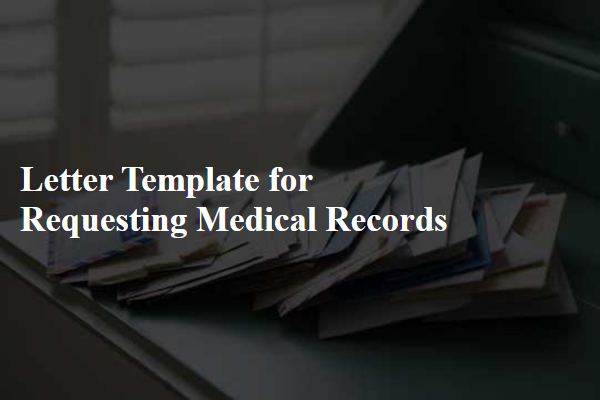
Patient identification and consent
To obtain medical records, complete patient identification is essential, including full name, date of birth, and patient ID number (if available) to ensure accurate retrieval. Consent forms must be signed by the patient, verifying authorization for the release of the records. This process typically involves specifying the records requested, such as lab results, imaging reports, or treatment summaries from medical practices or hospitals. Compliance with regulations like the Health Insurance Portability and Accountability Act (HIPAA) must be ensured to protect patient privacy during the record acquisition process. This request can be submitted to the relevant medical office or health information management department for processing.
Specific records requested
Requesting specific medical records is essential for ensuring continuity of care, especially for individuals transitioning between healthcare providers or seeking second opinions. Patients often require various documents, including treatment histories, lab results, imaging studies (such as X-rays or MRIs), and consultation summaries. For example, a patient's request may include records from a particular date range, such as all treatments received between January 1, 2020, and December 31, 2021, at a specific facility like St. Mary's Medical Center in San Francisco. It is crucial to specify to which healthcare professionals or departments the records pertain, such as the cardiology or oncology department, to facilitate a quicker and more efficient retrieval process. Providing demographic information, such as date of birth and patient identification number, ensures accuracy and compliance with HIPAA regulations when requesting sensitive health information.
Purpose of request
Requesting medical records is crucial for continuity of care, legal reasons, or medical research. Patients often need to obtain their medical histories from healthcare providers, such as hospitals or private clinics, to facilitate treatment coordination. Accurate medical records contain vital information, including diagnoses, treatments, lab results, and medication lists, providing a comprehensive view of a patient's health history. For legal proceedings, individuals may require these records to support claims or defenses in court. Additionally, researchers may seek aggregated medical records to analyze health trends and improve public health outcomes. Always ensure proper authorization and privacy measures are followed during the request process.
Preferred delivery method and format
Requesting medical records is essential for continuity of care. Patients typically specify their preferred delivery method, such as electronic health records (EHR) via secure email or postal mail, ensuring compliance with HIPAA regulations for privacy (Health Insurance Portability and Accountability Act). Additionally, the format of the records can vary, including PDF files, printed documents, or paper copies for physical storage. Proper identification, such as a government-issued ID or patient account number, must accompany the request to verify identity and authorize access. Timely processing of requests is crucial, as delays can impact ongoing treatments and consultations with healthcare professionals.
Contact information and deadline
To obtain medical records, individuals must usually provide specific contact information, including full name, date of birth, and current address. Hospitals or clinics, such as Springfield General Hospital (founded in 1985), often require these details to accurately locate the records, particularly if the patient has undergone treatment across multiple facilities. Additionally, stating a deadline (generally within 30 days from the request date) is crucial to ensure timely processing. Certain states may mandate a particular format or additional information, such as social security number, which can further streamline the retrieval process.

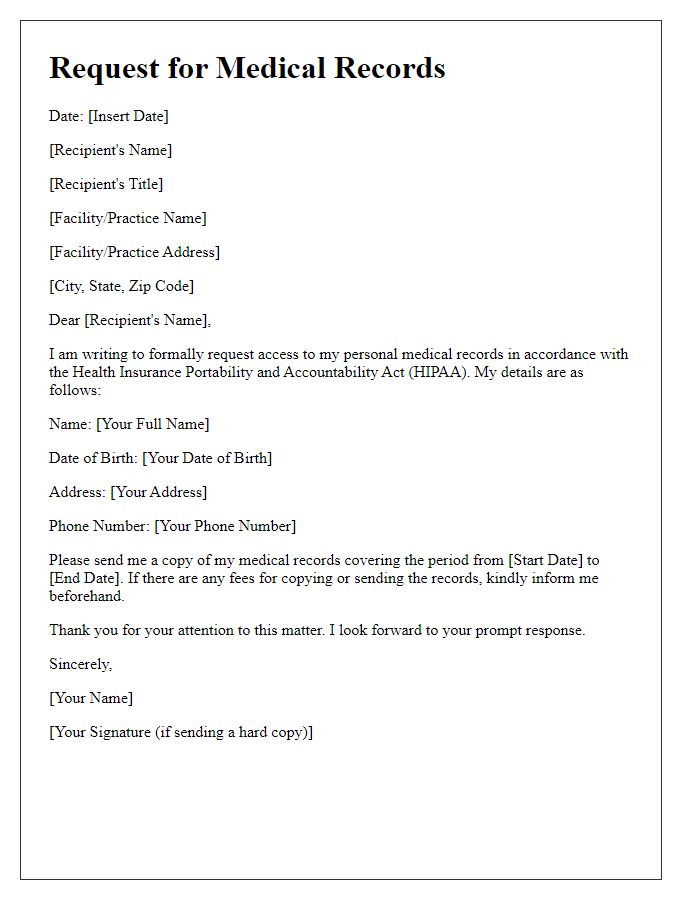
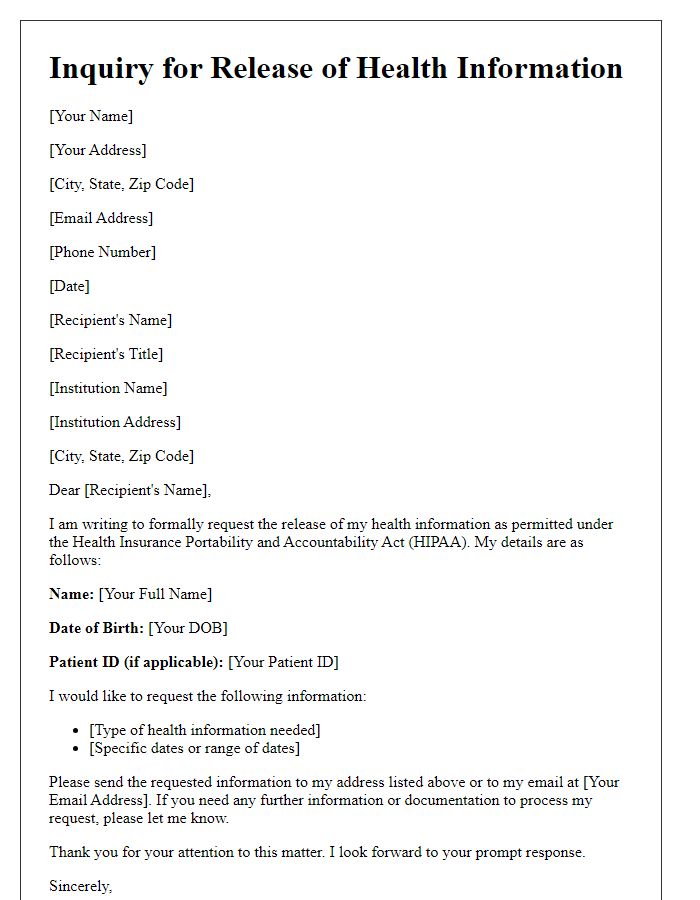
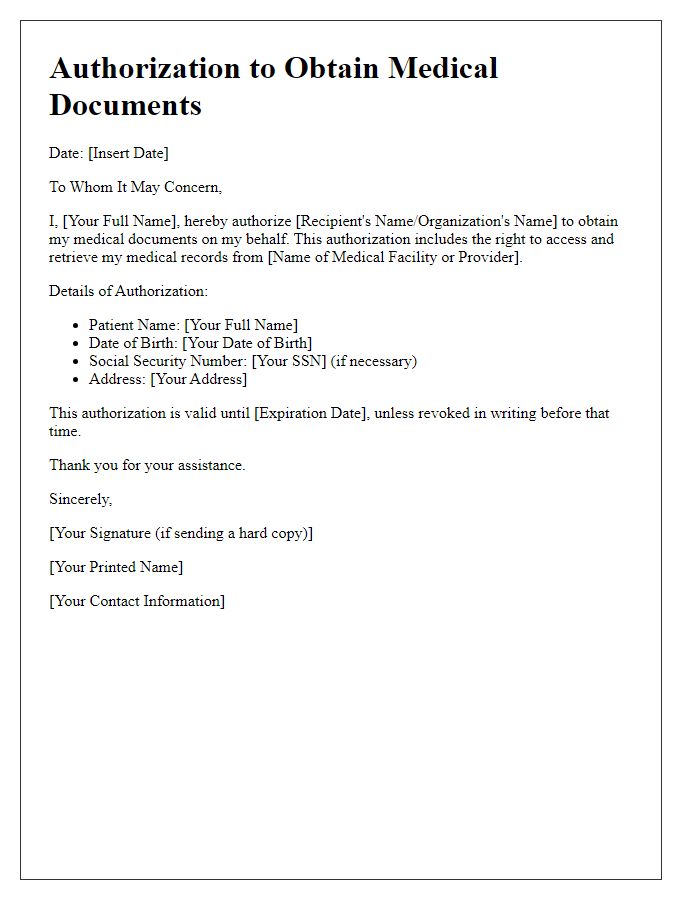
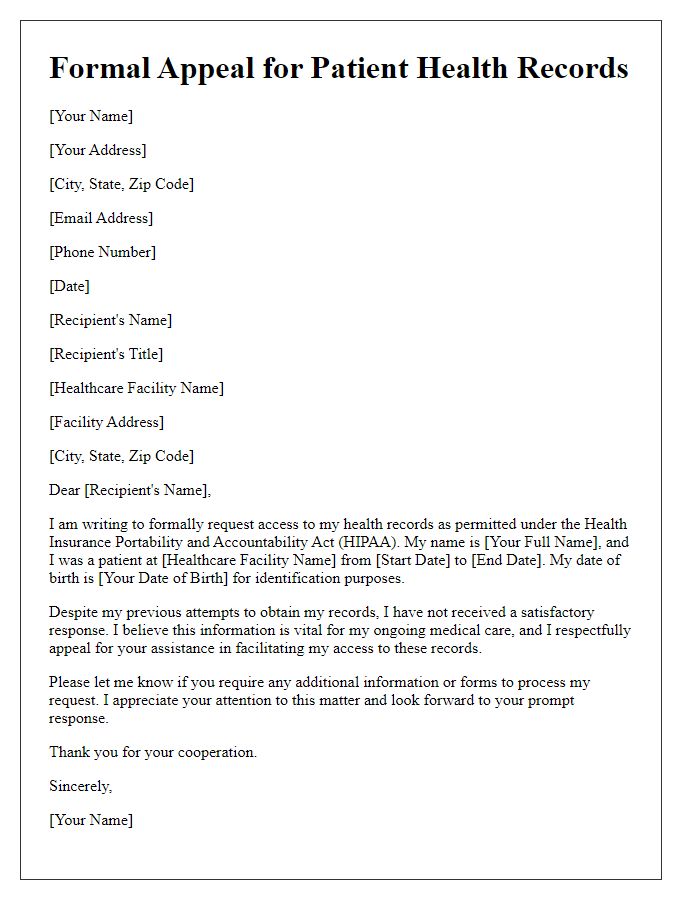
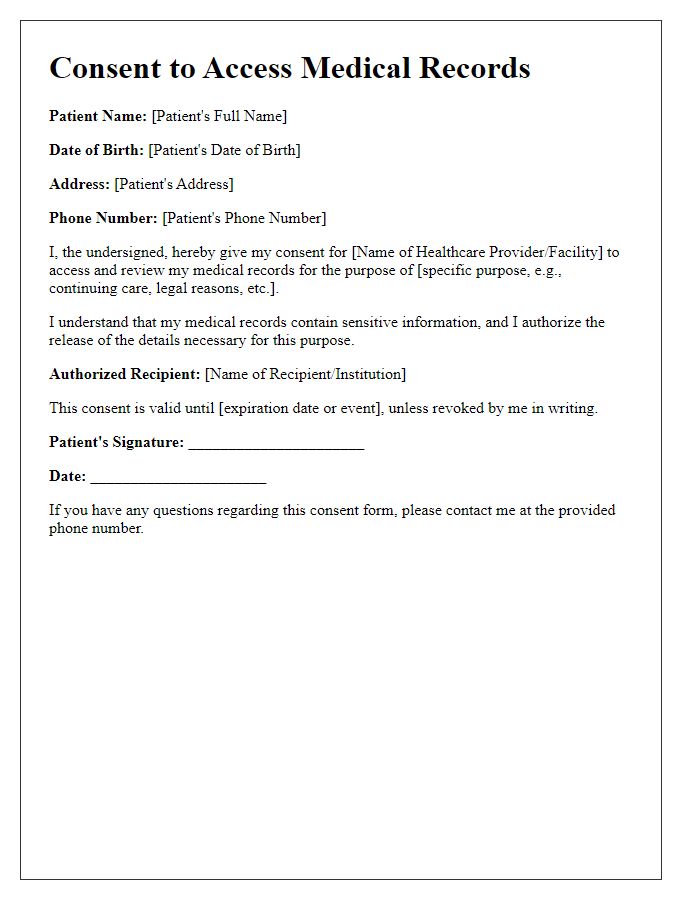
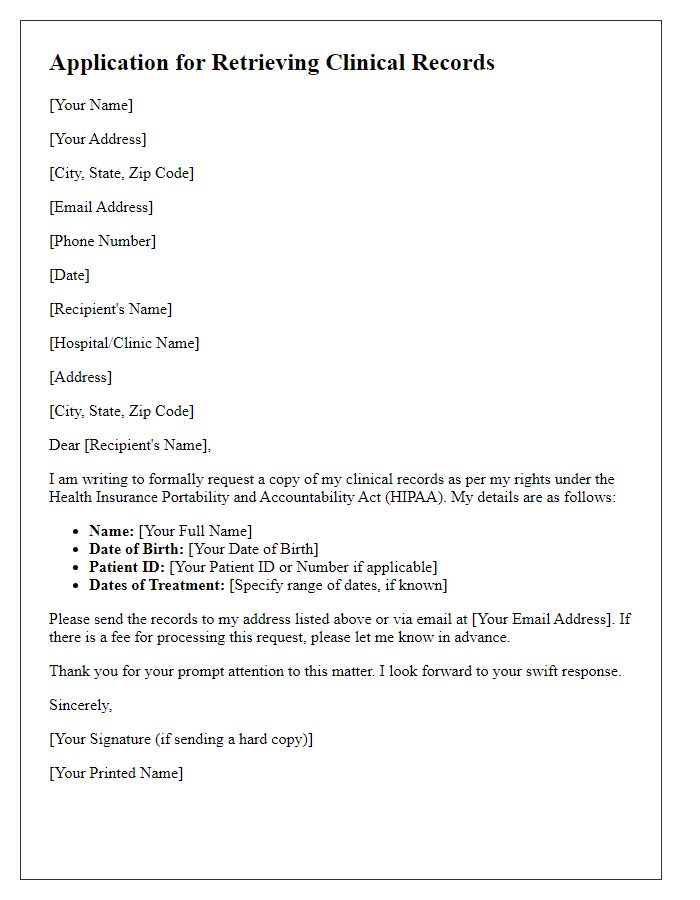
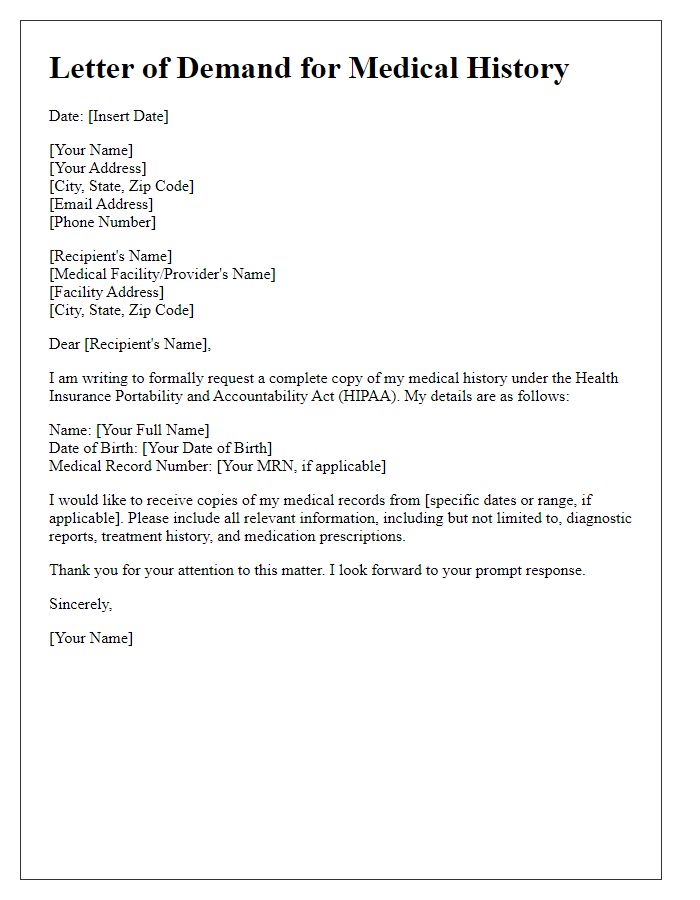
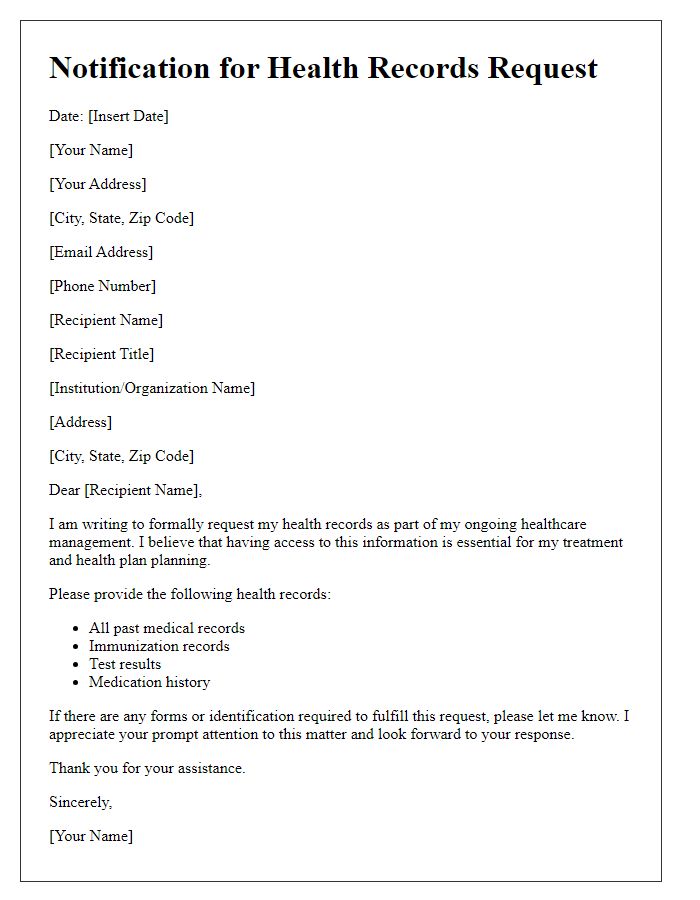
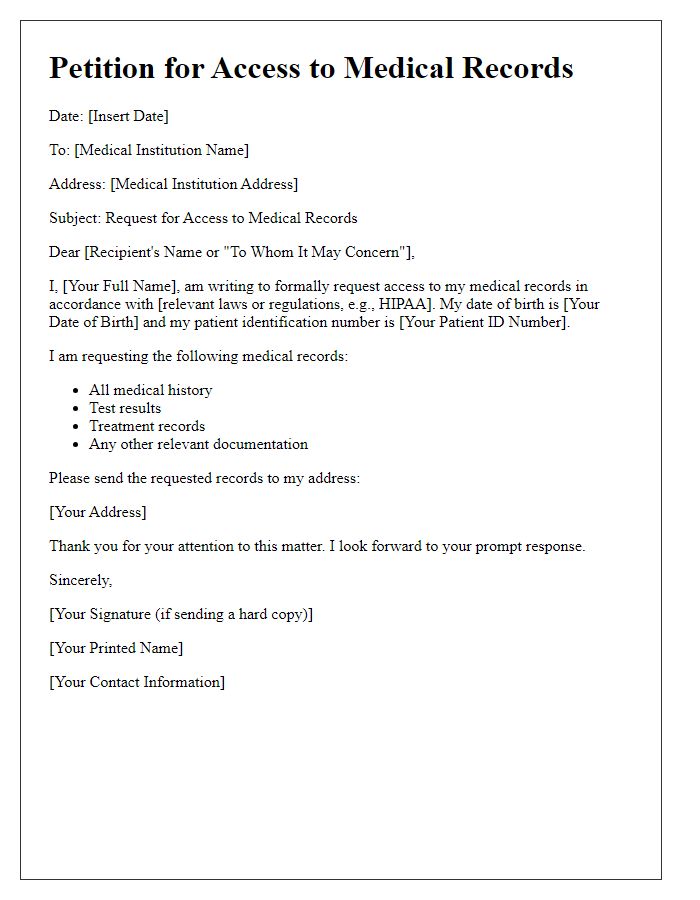
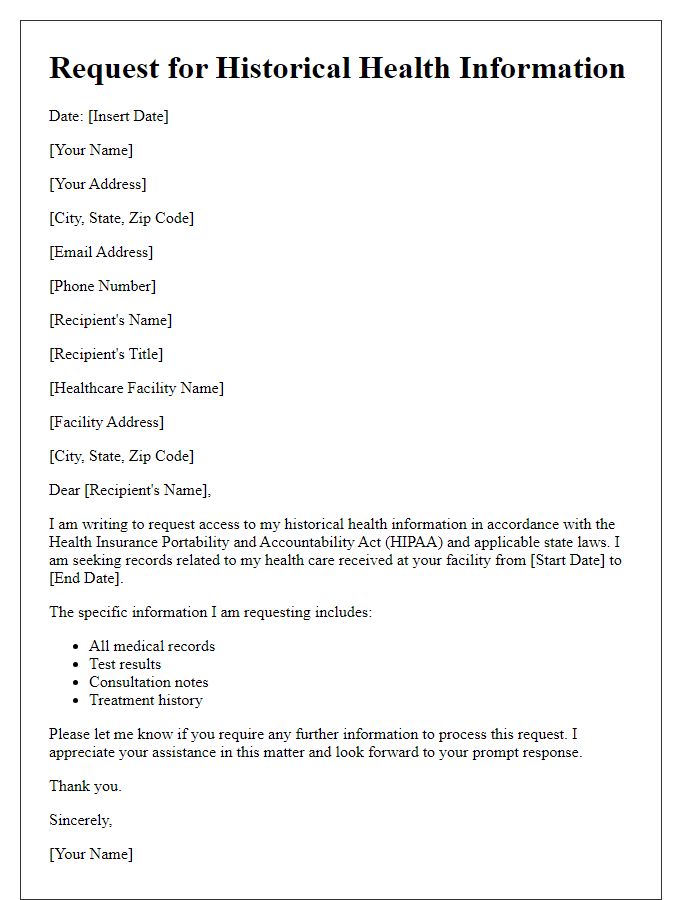


Comments